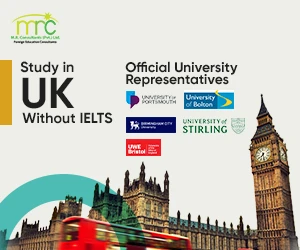British Council survey estimated that 37% of undergraduate and graduate students are considering to study abroad
An increasing number of British students go abroad for their higher education, partly because of raise in tuition fees.
A study conducted by the British Council found 37% of undergraduates and graduate students, said that they are considering studying abroad, an increase of 17% compared to the same survey last year.
Most of them said that the rise in tuition fees in England to £ 9000, which came into force two years ago, was actually behind their desire to look abroad. This share increased by 30 % compared to the survey in 2013.
The result confirms a similar survey conducted last year at the University of Maastricht in the Netherlands, which showed that high tuition fees in England were identified as students and senior teachers as the main reasons for considering foreign study.
U.S. was by far the most popular destination, called a third of those who are considering a course in another country. Australia, France and Germany were the next most famous selection, although they straggled far behind the United States.
Dr. Joe Beall, director of the British Council Education, said it was promising to see that the British students are looking abroad for study.
"The internationalization of the education sector in the UK cannot be one way process. More of our young people should be willing to travel if we want to catch up with countries such as France and Germany "said Beall.
An example is the business school of the University Business School in Madrid, which says a quarter of its European students, comes from the UK, involving scientists from the University in English and Spanish.
"The student body comprising 86 nationalities translate into high levels of diversity in our university is an interesting option for UK students seeking an international version of the academic experience," said Sheena Ferrero, the UK head of recruitment at the college.
Most students in the survey said that studying overseas will also help their employment and give them the opportunity to be familiar with foreign cultures whereas the others said they believed it would help them in their field of study and in the improvement of language skills.
But the vast majority of students, 80% of those who said that they were not considered it, and a third of those who were, felt that was enough information about opportunities for studying abroad. However, many other students said the main hurdles to studying abroad were worries about set in, lack of confidence in language skills, and worries about cost and travel.



.gif)


 3246
3246
 0
0



























